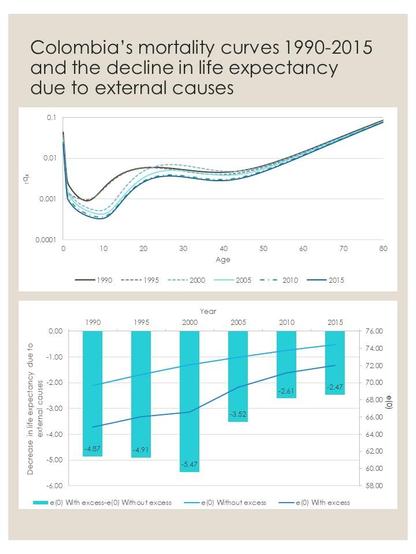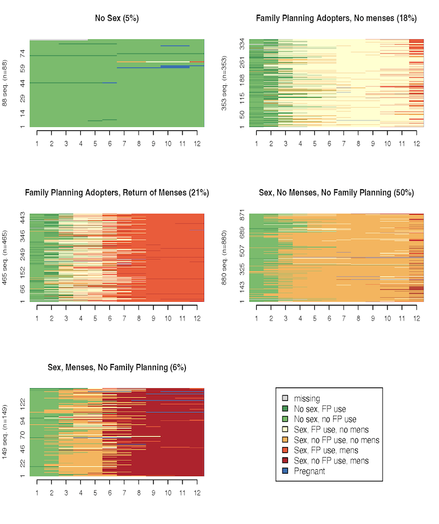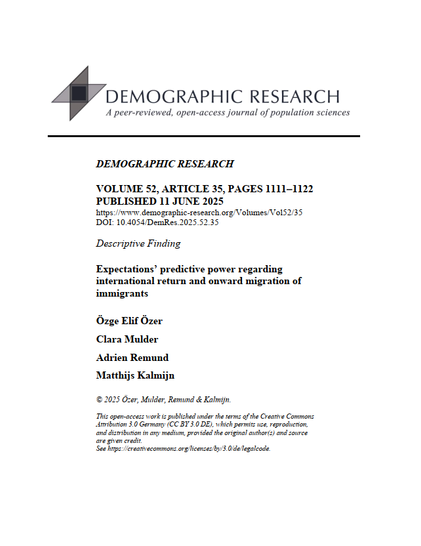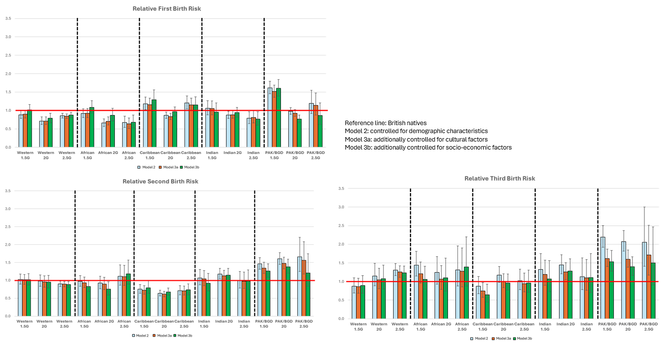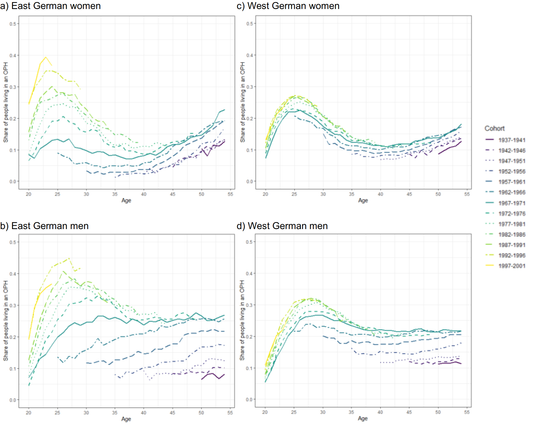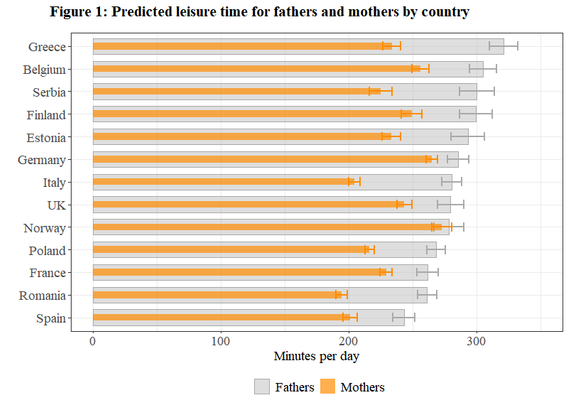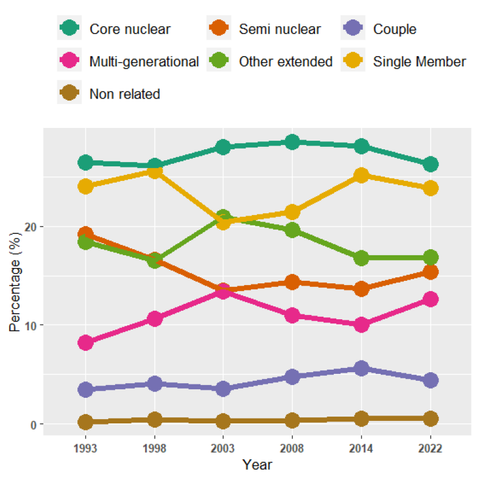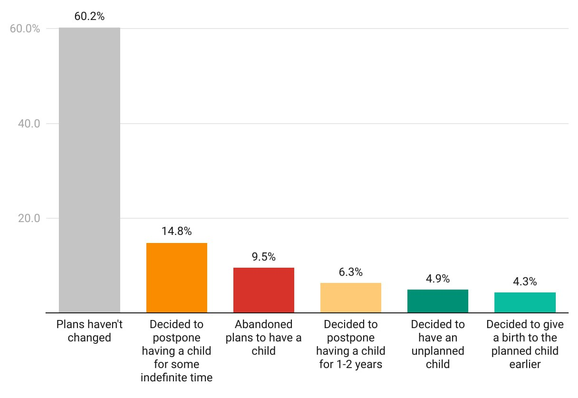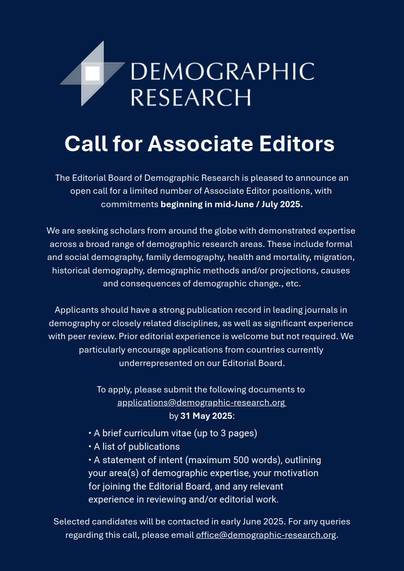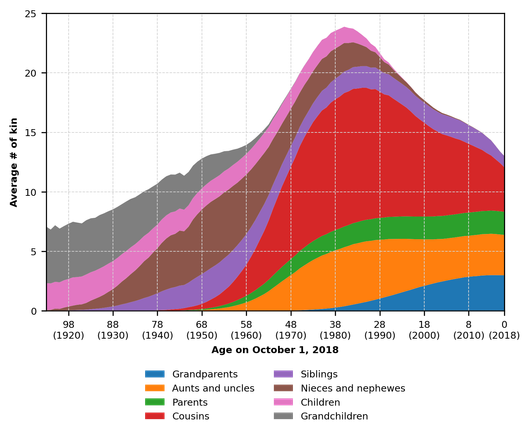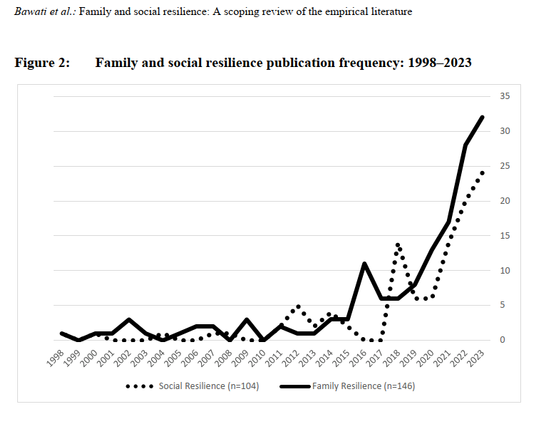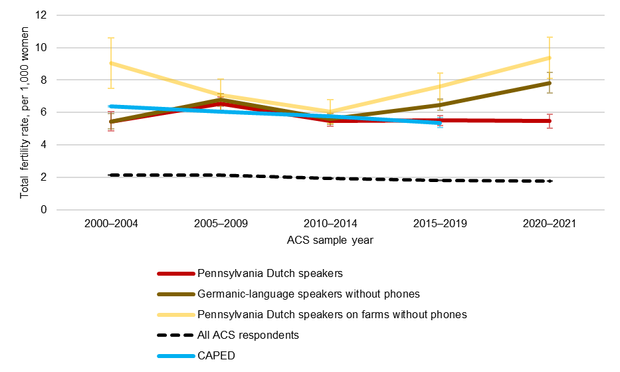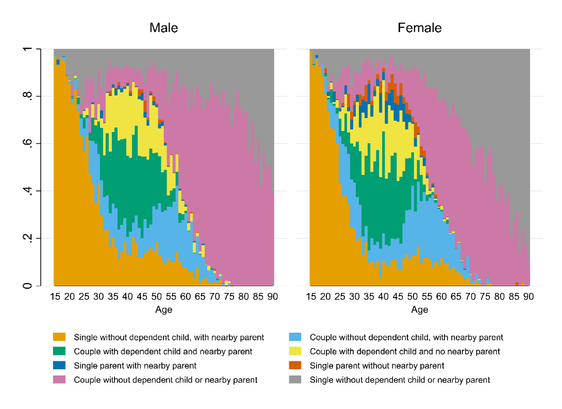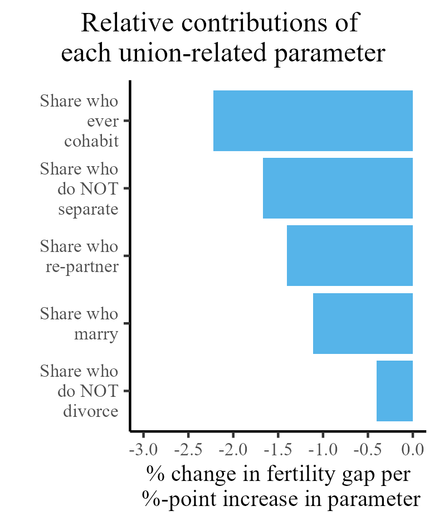Lina María Sanchez-Cespedes presents a simple method to adjust model life tables to estimate mortality curves with excess mortality and their backward projections. It enables the estimation of the decrease in life expectancy due to external causes. https://www.demographic-research.org/articles/volume/53/2
DEMOGRAPHIC RESEARCH is a peer-reviewed, open-access journal of population sciences published by the Max Planck Institute for Demographic Research in Rostock, Germany.
“We used sequence analysis to reveal five distinct postpartum pregnancy exposure patterns in Ethiopia. This approach offers holistic understanding of postpartum fecundity and measuring unmet need for family planning.” https://www.demographic-research.org/articles/volume/53/1
By linking survey data with #longitudinal #register data, study examines the predictive power of immigrants’ #migration expectations in the Netherlands and finds that expectations such as return or onward migration are strong predictors of actual #behaviour. https://www.demographic-research.org/articles/volume/52/35
Most U.S. grandchildren live close to a grandparent: almost half live within 10 miles and 13% live within 1 mile of a grandparent. When families live closer, they spend more time helping one another, playing important roles in each other’s lives.
https://www.demographic-research.org/articles/volume/52/34/
“We examine first, second, and third birth rates amongst those who moved to the UK as children, were born in the UK to two foreign-born parents, or were born to one foreign-born and one UK-born parent.”
https://www.demographic-research.org/articles/volume/52/33/
The number of one-person #households in #Germany has steadily increased since reunification. A #decomposition of German #Microcensus data from 1991 to 2021 suggests shifting mechanisms driving this trend in both East and West Germany.
https://www.demographic-research.org/articles/volume/52/32
Who gets the privilege of free time? Across Europe, fathers enjoy more leisure time than mothers, especially in Southern and Eastern countries. New research across 13 countries shows persistent gender gaps in parental leisure. https://www.demographic-research.org/articles/volume/52/31/
Ghanaian data shows weak support for the nuclear convergence hypothesis. Urbanisation hasn't led to the dominance of nuclear families—extended types persist.
#Demography #Household_structure #Ghana #Nuclear_convergence
While studying changes in fertility intentions in Russia during the Russia-Ukraine armed conflict, researchers found that subjective factors — such as emotional state and attitudes toward the political situation — played a greater role than traditional objective characteristics like age or employment status. https://www.demographic-research.org/articles/volume/52/29/
Figure illustrates change in fertility intentions.
Open call for Associate Editors at the online journal Demographic Research!! To find out more about requirements and application procedures please see here https://www.demographic-research.org/files/Call_for_Associate_Editors.pdf
How do demographic trends shape kinship networks? This replication study compares Swedish and Dutch kinship networks, showing how fertility patterns and divorce rates impact family ties across generations. #Replication #Kinship #POPNET https://www.demographic-research.org/articles/volume/52/28/
@bokanyie
New scoping review shows that literatures on Family resilience and Social Resilience are disconnected. The lens of family inequalities in socioeconomic contexts can bridge these two perspectives. https://www.demographic-research.org/articles/volume/52/27/
The American Community Survey’s rich social variables complement CAPED-2010s’ comprehensive demographic coverage, demonstrating the credibility of two separate large databases for studies of the Amish. https://www.demographic-research.org/articles/volume/52/26/
Family structures shape caregiving dynamics and are considered key drivers of inequality. Using the 10th wave of the European Social Survey, Saverio Minardi investigated the age prevalence of family structures across groups through multinomial logistic regression. https://www.demographic-research.org/articles/volume/52/25/
“An old question, but an updated approach! We use #microsimulation to examine how #education, union events, and physiology interact to produce (part of) the #fertility gap in a recent birth cohort of Dutch women.” https://www.demographic-research.org/articles/volume/52/24/
In historical and conflict demography, it is common to estimate a large death toll as the discontinuity between two observed or projected population estimates. Hampton Gaddy and Maria Gargiulo show why this method creates important problems for demographic and econometric work. https://www.demographic-research.org/articles/volume/52/23/
Which family life course aspects shape wealth the most? Our (@NicoleKapelle and Carla Rowold) novel data-driven study uncovers the key family-related predictors of wealth in late working age. Hint: It’s not as simple as you think! Read more: https://www.demographic-research.org/articles/volume/52/22/ #SocialStratification #FamilyDynamics #Sociology #Demography #MachineLearning
This study by Ryota Mugiyama shows that increased employment instability significantly contributes to cross-cohort delays in first marriage and first birth for men in Japan, highlighting the key role of labor market changes in postponing family formation. https://www.demographic-research.org/articles/volume/52/21/
New study by John Iceland & Jaehoon Cho finds that married couples face fewer hardships than others. Single-parent households struggle most. Wealth is most important in explaining disparities, followed by income, demographic factors. https://www.demographic-research.org/articles/volume/52/20/
Since 2015, drugs, homicide, and unintentional injuries have significantly contributed to the stalling and widening of the Black-White mortality gap, especially among men without a college degree. 📄 👉 https://www.demographic-research.org/articles/volume/52/18
